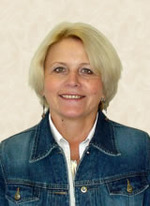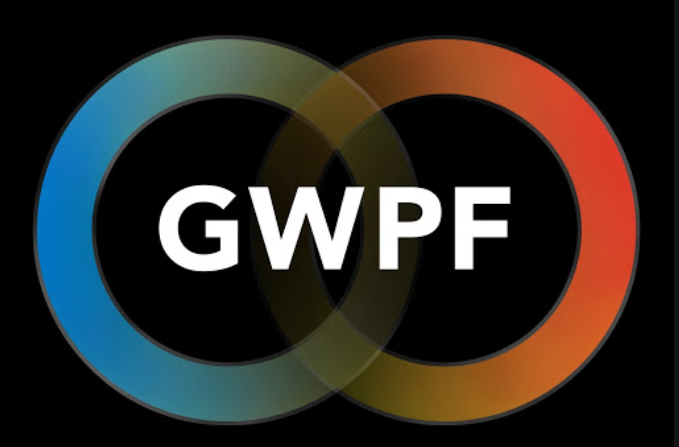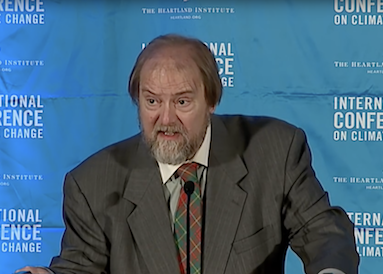Valentina Zharkova
Credentials
- Ph.D. Astrophysics, Main Astronomical Observatory, Kyiv, Ukraine (1984)1“Professor Valentina Zharkova,” Northumbria University Newcastle. Archived November 7, 2018. Archive.fo URL: https://archive.fo/3x89M
- M.S. Applied Math, National University of Kyiv, Ukraine (1975)2“Professor Valentina Zharkova,” Northumbria University Newcastle. Archived November 7, 2018. Archive.fo URL: https://archive.fo/3x89M
- B.S., National University of Kyiv, Ukraine3“Professor Valentina Zharkova,” Northumbria University Newcastle. Archived November 7, 2018. Archive.fo URL: https://archive.fo/3x89M
Background
Valentina V. Zharkova is a professor on the mathematics, physics, and electrical engineering faculty at Northumbria University in Newcastle, UK.4“Professor Valentina Zharkova,” Northumbria University Newcastle. Archived November 7, 2018. Archive.fo URL: https://archive.fo/3x89M
Zharkova moved to the UK in 1992 to take a position as Senior Royal Society at the Astronomy Group of Glasgow University, and was a research fellow at the university from 1993 to 1999. In 2000, Zharkova became a lecturer at the University of Bradford, then a reader, and in 2005 a professor of applied mathematics. In September 2013, Zharkova joined the mathematics, physics, and electrical engineering faculty of Northumbria University in Newcastle, UK.5“Professor Valentina Zharkova: The Solar Magnet Field and the Terrestrial Climate,” YouTube video uploaded by user “GWPF,” November 5, 2018. Archived .mp4 on file at DeSmog. 6“Professor Valentina Zharkova,” Northumbria University Newcastle. Archived November 7, 2018. Archive.fo URL: https://archive.fo/3x89M
Valentina Zharkova’s research into solar activity has been credited with reigniting the “imminent mini ice age” myth,7Dana Nuccitelli. “The ‘imminent mini ice age’ myth is back, and it’s still wrong,” The Guardian, January 9, 2018. Archived November 7, 2018. Archive.fo URL: https://archive.fo/aPzgO and her work has been cited by climate change deniers such as H. Sterling Burnett.8H. Sterling Burnett. “New Science Contradicts Climate Alarmists’ Predictions of Global Warming Doom,” CNS News, July 20, 2015. Archived June 8, 2021. Archive URL: https://archive.ph/QseMe
These types of claims have been debunked by Skeptical Science, a website that exposes common climate change denial myths.9“A grand solar minimum would barely make a dent in human-caused global warming,” SkepticalScience. Accessed June 8, 2021.
Stance on Climate Change
August 2020
In an editorial for the scholarly journal Temperature, which “publishes papers related to interactions between living matter and temperature, with focus on the medical physiology of body temperature regulation,”10“Temperature,” Taylor & Francis Online. Archived June 7, 2021. Archive URL: https://archive.ph/1kZrq Valentina Zharkova wrote:11Valentina Zharkova. “Modern Grand Solar Minimum will lead to terrestrial cooling“, Temperature, 7:3, 217-222. Archived June 8, 2021. Archive URL: https://archive.ph/YIVyc
“The reduction of a terrestrial temperature during the next 30 years can have important implications for different parts of the planet on growing vegetation, agriculture, food supplies, and heating needs in both Northern and Southern hemispheres. This global cooling during the upcoming grand solar minimum 1 (2020–2053) can offset for three decades any signs of global warming and would require inter-government efforts to tackle problems with heat and food supplies for the whole population of the Earth.”
December 27, 2017
In an interview with Sky News, Valentina Zharkova said:12“Scientists predict ‘mini ice age’ could hit UK by 2030,” Sky News, December 27, 2017. Archived November 7, 2018. Archive.fo URL: https://archive.fo/z08iU
“I hope global warning will be overridden by this effect [lower solar magnetic activity], giving humankind and the Earth 30 years to sort out our pollution,” Zharkova said. “We have to be sorted by that time and prepare everything on Earth for the next big solar activity.”
Key Quotes
August 9, 2016
Following her appearance at a Global Warming Policy Foundation event, Michael Bastasch quoted Valentina Zharkova in an article for The Daily Caller:13Michael Bastasch. “Scientist Predicts ‘Little Ice Age,’ Gets Icy Reception From Colleagues,” The Daily Caller, August 9, 2016. Archived June 8, 2021. Archive URL: https://archive.ph/FldE9
“’Whatever we do to the planet, if everything is done only by the sun, then the temperature should drop similar like it was in the Maunder Minimum,’ she said. “At least in the Northern hemisphere, where this temperature is well protocoled and written. We didn’t have many measurements in the Southern hemisphere, we don’t know what will happen with that, but in the Northern hemisphere, we know it’s very well protocoled.’
“’The rivers are frozen,’ she added. ‘There are winters and no summers, and so on.'”
Key Deeds
March 4, 2020
Scientific Reports retracted a paper co-authored by Valentina Zharkova (with S. J. Shepherd, S. I. Zharkov, and E. Popova) titled “Oscillations of the baseline of solar magnetic field and solar irradiance on a millennial timescale,” which the journal had initially published in June 2019. 14“Retraction Note: Oscillations of the baseline of solar magnetic field and solar irradiance on a millennial timescale, Sci Rep 9, 9197 (2019) 15” Scientific Reports, March 4, 2020. Archived .pdf on file at DeSmog.
According to the retraction note:16“Retraction Note: Oscillations of the baseline of solar magnetic field and solar irradiance on a millennial timescale, Sci Rep 9, 9197 (2019) 17” Scientific Reports, March 4, 2020. Archived .pdf on file at DeSmog.
“The Editors have retracted this Article.
“After publication, concerns were raised regarding the interpretation of how the Earth-Sun distance changes over time and that some of the assumptions on which analyses presented in the Article are based are incorrect.
“The analyses presented in the section entitled ‘Effects of SIM on a temperature in the terrestrial hemispheres’ are based on the assumption that the orbits of the Earth and the Sun about the Solar System barycenter are uncorrelated, so that the Earth-Sun distance changes by an amount comparable to the Sun-barycenter distance. Post-publication peer review has shown that this assumption is inaccurate because the motions of the Earth and the Sun are primarily due to Jupiter and the other giant planets, which accelerate the Earth and the Sun in nearly the same direction, and thereby generate highly-correlated motions in the Earth and Sun. Current ephemeris calculations show that the Earth-Sun distance varies over a timescale of a few centuries by substantially less than the amount reported in this article. As a result the Editors no longer have confidence in the conclusions presented.
“S. I. Zharkov agrees with the retraction. V. V. Zharkova, E. Popova, and S. J. Shepherd disagree with the retraction.”
February 18-19, 2020
On a Nature Research retraction form, Valentina Zharkova disagreed with the decision by editors of Scientific Reports to retract a 2019 paper she had co-authored, “Oscillations of the baseline of solar magnetic field and solar irradiance on a millennial timescale.”18“Retraction Note: Oscillations of the baseline of solar magnetic field and solar irradiance on a millennial timescale, Sci Rep 9, 9197 (2019).” Scientific Reports, March 4, 2020. Archived .pdf on file at DeSmog. Zharkova claimed that the retraction was an attempt to “cover up” their research, stating in part: 19“Retraction Form” (PDF), February 18, 2020. Retrieved from solargsm.com. Archived .pdf on file at DeSmog.
“I consider this retraction as a denial of new and independent research, violation of our IPRs [intellectual property rights] and as a cover up of the important solar forcing previously missed in the terrestrial models, because of a reduction of the Sun-Earth distance with a rate of 0.00025 au per 100 years reported by us.”
July 2018
Valentina Zharkova gave a presentation at the Global Warming Policy Foundation (GWPF) about her “Climate and the Solar Magnetic Field hypothesis.“20“Professor Valentina Zharkova: The Solar Magnet Field and the Terrestrial Climate,” YouTube video uploaded by user “GWPF,” November 5, 2018. Archived .mp4 on file at DeSmog.
GWPF director Benny Peiser commented that his organization noticed Zharkova’s work after she gave a presentation at the Royal Astronomical Society in 2015.
“Interestingly, some climate scientists weren’t very happy that you did research on these issues,” Pieser said, “and not happy about your findings and actually tried to tell the Royal Society […] to withdraw basically.”
Later in the presentation (timestamp 54:04), Peiser summarized Zharkova’s predictions about global temperatures:
“So you’re actually making a clear, based on your research findings, a clear prediction saying that after 2020, temperatures will begin to decrease.”
Zharkova responded: “Decrease. Yeah. It will be.”
Valentina Zharkova responded to a question from an audience member regarding incorporation of UN Intergovernmental Panel on Climate Change (IPCC) models with her own:
Valentina Zharkova: [01:13:43] IPCC models of the Earth’s atmosphere, temperature variation affected by exchange of the water. And they never measured actually carbon. They measured evaporation of the water. And there is research by Murry Salby, you know, he he claims that they cannot measure what they claim. . . .
Audience Member: [01:16:29] I’m sorry to go back to my question, but just to try and clarify it. Your model doesn’t take into account increasing CO2 emissions. [01:16:38]
Valentina Zharkova: [01:16:39] No, no, no. I do everything on the sun. [01:16:41]
Audience Member: [01:16:42] Indeed. It’s wonderful. What impact will CO2 emissions have on on your model? [01:16:49]
Valentina Zharkova: [01:16:50] None. I can answer “none.” Sun is so far away, Earth cannot affect it. [01:16:57]
Benny Peiser: [01:16:57] No, the question I think that the gentleman is asking is, do you think that the CO2 emissions have any effect on the warming, on the terrestrial warming trend we’ve seen over recent decades, or is this–? [01:17:12]
Valentina Zharkova: [01:17:13] My personal opinion, I trust Murry Salby. I believe no, they cannot measure it. They cannot measure it because it is too small. It’s only three percent while the natural carbon CO2 is much higher. [01:17:27]
Benny Peiser: [01:17:27] A slightly different question. Yeah, that’s you’re answering the question about whether it’s human emissions, of course, the increase in the atmosphere. [01:17:34]
September 2018
Ilya Usoskin, head of the Oulu Cosmic Ray Station and Vice-Director of the ReSoLVE Center of Excellence in Research,21“Ilya Usoskin,” University of Oulu. Archived October 1, 2024. Archive URL: https://archive.ph/3qqUK published a critique of Zharkova’s solar modelling in the Journal of Atmospheric and Solar Terrestrial Physics.22Ilya G. Usoskin. “Comment on the paper by Popova et al. “On a role of quadruple component of magnetic field in defining solar activity in grand cycles,” Journal of Atmospheric and Solar-Terrestrial Physics, Volume 176, (2018) Pages 69-71, ISSN 1364-6826. Archived October 1, 2024. Archive URL: https://archive.ph/HwxGb
January 2018
The Guardian reported that Valentina Zharkova’s work had reignited the “imminent mini ice age” myth more than once.23Dana Nuccitelli. “The ‘imminent mini ice age’ myth is back, and it’s still wrong,” The Guardian, January 9, 2018. Archived November 7, 2018. Archive.fo URL: https://archive.fo/aPzgO
“While she has created a model predicting an imminent period of quiet solar activity, other scientists have identified serious flaws in the model, and in any case, research has shown that another solar minimum would only have a small and temporary impact on Earth’s climate,” The Guardian‘s Dana Nuccitelli wrote.24Dana Nuccitelli. “The ‘imminent mini ice age’ myth is back, and it’s still wrong,” The Guardian, January 9, 2018. Archived November 7, 2018. Archive.fo URL: https://archive.fo/aPzgO
July 9, 2015
Valentina Zharkova gave a presentation at the Royal Astronomical Society on a new model of the solar cycle.25(Press Release). “Irregular heartbeat of the Sun driven by double dynamo,” Royal Astronomical Society, July 9, 2015. Archived November 8, 2015. Archive URL: https://archive.ph/L0YF3
Writing at The Conversation a few days after the event, Michael J. I. Brown of Monash University, an associate professor of astronomy, described a Royal Astronomical Society press release about the presentation as “a giant failure of science communication.” Brown also observed that Zharkova’s paper on the subject made “no mention of climate.”26Michael J. I. Brown. “The ‘mini ice age’ hoopla is a giant failure of science communication,” The Conversation, July 3, 2015. Archived June 7, 2021. Archive URL: https://archive.ph/YG1nZ
Affiliations
- Northumbria University — Professor, Department of Mathematics, Physics, and Electrical Engineering.27“Professor Valentina Zharkova,” Northumbria University Newcastle. Archived November 7, 2018. Archive.fo URL: https://archive.fo/3x89M
Social Media
- Prof. Valentina Zharkova on LinkedIn
Publications
According to a search of Google Scholar, Valentina V. Zharkova has co-authored several peer-reviewed articles on solar activity.
Valentina Zharkova maintains a list of her publications on her website, “Valentina Zharkova’s GSM.”
Other Resources
Resources
- 1“Professor Valentina Zharkova,” Northumbria University Newcastle. Archived November 7, 2018. Archive.fo URL: https://archive.fo/3x89M
- 2“Professor Valentina Zharkova,” Northumbria University Newcastle. Archived November 7, 2018. Archive.fo URL: https://archive.fo/3x89M
- 3“Professor Valentina Zharkova,” Northumbria University Newcastle. Archived November 7, 2018. Archive.fo URL: https://archive.fo/3x89M
- 4“Professor Valentina Zharkova,” Northumbria University Newcastle. Archived November 7, 2018. Archive.fo URL: https://archive.fo/3x89M
- 5“Professor Valentina Zharkova: The Solar Magnet Field and the Terrestrial Climate,” YouTube video uploaded by user “GWPF,” November 5, 2018. Archived .mp4 on file at DeSmog.
- 6“Professor Valentina Zharkova,” Northumbria University Newcastle. Archived November 7, 2018. Archive.fo URL: https://archive.fo/3x89M
- 7Dana Nuccitelli. “The ‘imminent mini ice age’ myth is back, and it’s still wrong,” The Guardian, January 9, 2018. Archived November 7, 2018. Archive.fo URL: https://archive.fo/aPzgO
- 8H. Sterling Burnett. “New Science Contradicts Climate Alarmists’ Predictions of Global Warming Doom,” CNS News, July 20, 2015. Archived June 8, 2021. Archive URL: https://archive.ph/QseMe
- 9“A grand solar minimum would barely make a dent in human-caused global warming,” SkepticalScience. Accessed June 8, 2021.
- 10“Temperature,” Taylor & Francis Online. Archived June 7, 2021. Archive URL: https://archive.ph/1kZrq
- 11Valentina Zharkova. “Modern Grand Solar Minimum will lead to terrestrial cooling“, Temperature, 7:3, 217-222. Archived June 8, 2021. Archive URL: https://archive.ph/YIVyc
- 12“Scientists predict ‘mini ice age’ could hit UK by 2030,” Sky News, December 27, 2017. Archived November 7, 2018. Archive.fo URL: https://archive.fo/z08iU
- 13Michael Bastasch. “Scientist Predicts ‘Little Ice Age,’ Gets Icy Reception From Colleagues,” The Daily Caller, August 9, 2016. Archived June 8, 2021. Archive URL: https://archive.ph/FldE9
- 14
- 15” Scientific Reports, March 4, 2020. Archived .pdf on file at DeSmog.
- 16
- 17” Scientific Reports, March 4, 2020. Archived .pdf on file at DeSmog.
- 18“Retraction Note: Oscillations of the baseline of solar magnetic field and solar irradiance on a millennial timescale, Sci Rep 9, 9197 (2019).” Scientific Reports, March 4, 2020. Archived .pdf on file at DeSmog.
- 19“Retraction Form” (PDF), February 18, 2020. Retrieved from solargsm.com. Archived .pdf on file at DeSmog.
- 20“Professor Valentina Zharkova: The Solar Magnet Field and the Terrestrial Climate,” YouTube video uploaded by user “GWPF,” November 5, 2018. Archived .mp4 on file at DeSmog.
- 21
- 22Ilya G. Usoskin. “Comment on the paper by Popova et al. “On a role of quadruple component of magnetic field in defining solar activity in grand cycles,” Journal of Atmospheric and Solar-Terrestrial Physics, Volume 176, (2018) Pages 69-71, ISSN 1364-6826. Archived October 1, 2024. Archive URL: https://archive.ph/HwxGb
- 23Dana Nuccitelli. “The ‘imminent mini ice age’ myth is back, and it’s still wrong,” The Guardian, January 9, 2018. Archived November 7, 2018. Archive.fo URL: https://archive.fo/aPzgO
- 24Dana Nuccitelli. “The ‘imminent mini ice age’ myth is back, and it’s still wrong,” The Guardian, January 9, 2018. Archived November 7, 2018. Archive.fo URL: https://archive.fo/aPzgO
- 25(Press Release). “Irregular heartbeat of the Sun driven by double dynamo,” Royal Astronomical Society, July 9, 2015. Archived November 8, 2015. Archive URL: https://archive.ph/L0YF3
- 26Michael J. I. Brown. “The ‘mini ice age’ hoopla is a giant failure of science communication,” The Conversation, July 3, 2015. Archived June 7, 2021. Archive URL: https://archive.ph/YG1nZ
- 27“Professor Valentina Zharkova,” Northumbria University Newcastle. Archived November 7, 2018. Archive.fo URL: https://archive.fo/3x89M





